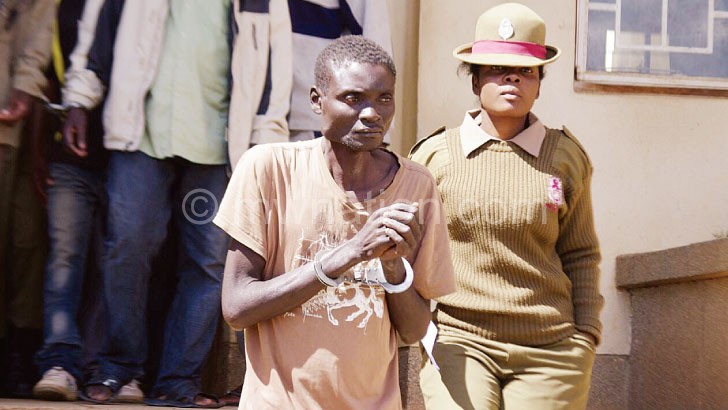Judge Madise hailed for albino verdict
Mzuzu-based High Court Judge Dingiswayo Madise on Wednesday received backing from activists and a legal scholar for his life imprisonment of a 33-year-old man who attempted to kill an 11-year-old boy with albinism.
The convict, Samson Kaumba, has become the first to be slapped with life imprisonment in relation to the increased cases of killings, abductions and grave exhumations of people with albinism, an issue that has made Malawi come under international spotlight.
Commenting on the ruling in a telephone interview Wednesday, University of Malawi’s Chancellor College associate professor of law Edge Kanyongolo said the sentence was strong as it is unusual for a court to impose a maximum penalty for an offence. He said it would send a message that the Judiciary takes the issue seriously.

Said Kanyongolo: “Sentencing has got its own rules and in many cases the judge has got what we call discretion and it is not common for that discretion to be exercised to the maximum.”
However, he said he was not sure that the court can order that there should be no pardon because the power to pardon is provided for in the Constitution.
Said Kanyongolo: “So, the President’s power to pardon, I think that a court cannot pre-empt that power. All a court can do is pass a sentence and once that is done, the rest of the processes are not in the hands of the court.”
Human Rights Consultative Committee (HRCC) chairperson Robert Mkwezalamba, whose grouping is a network of 90 civil society organisations and NGOs, said given the spate of the killings, coupled with the challenge that Malawians do not know why the killings are taking place, HRCC sees the ruling as an attempt to get to the bottom of the matter.
“If anything, one would have expected that when the ruling was being delivered, one should have risen to say I am not alone; there is also Mr So and So, but in the absence of that, you would allow the ruling to proceed because for one thing, it is provided for in our laws.
“If they are not satisfied with the ruling, under the principles of natural justice, they will be entitled to appeal,” he said.
Edward Chileka-Banda, chairperson of the Stakeholders Action Group against Killings of People with Albinism whose grouping has been calling for reinforcement of capital punishment to offenders in the offences involving people with albinism, said there is happiness and jubilation in their camp following the ruling.
He said the ruling is exactly what the group has been pushing for to stop the various persecutions of people with albinism; a strong message should be sent to the general public regarding what a serious violation to human rights the incidences are.
The ruling, the first of its kind, is coming on the heels of a ruling made in April this year by the Mponela First Grade Magistrate’s Court which at that time stood as the most severe delivered since the cases of killings surfaced in the country.
The Mponela court sentenced an uncle to 17 years imprisonment. He was arrested together with his nine accomplices on suspicion that they murdered Eneless Nkhata, his 21-year-old niece with albinism. He was sentenced on the offences of conspiracy to commit a felony and abduction. He is yet to be charged for murder.
Association of People with Albinism (Apam) president Boniface Massah said the sentencing brought hope to them that courts had began to offer penalties that would deter would be offenders. n





